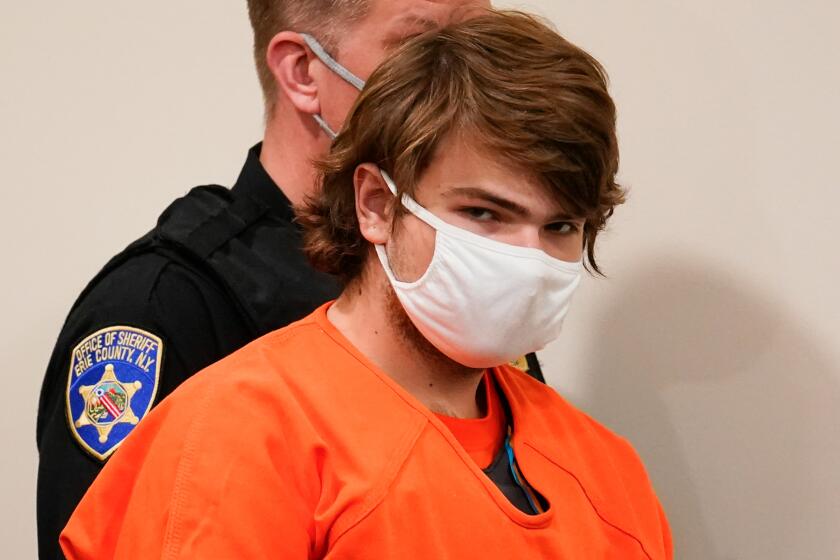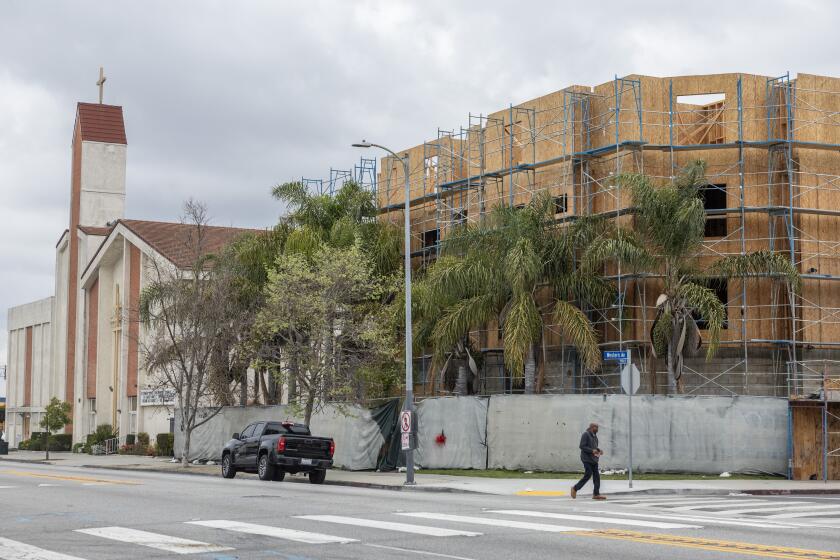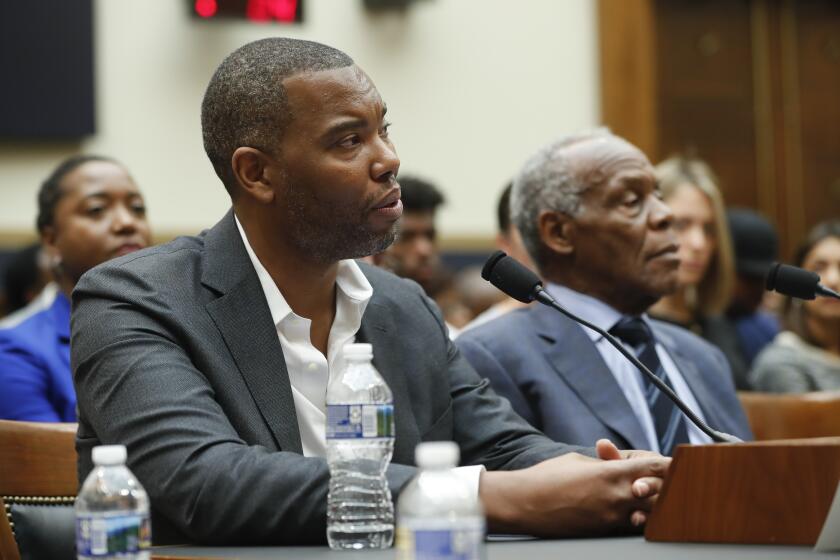Editorial: Execution despite doubt over guilt is a perversion of justice

The execution of Robert Roberson in Texas remains on track for Thursday, despite serious doubts that he killed or even mistreated his 2-year-old daughter in 2002.
Prosecutors and medical experts insisted at trial that the child’s head trauma was evidence that Roberson had physically abused her. But now the detective who testified against him says he believes Roberson is innocent, and a string of physicians argue that the “shaken baby syndrome” diagnosis that was standard medical doctrine at the time, and a key to Roberson’s conviction, is junk science and unreliable evidence of abuse.
The theory is in such disrepute that the Texas Court of Criminal Appeals on Oct. 9 overturned the conviction of another man, Andrew Roark, 25 years after he was found to have injured his girlfriend’s child by severe shaking. It’s unlikely a jury today would buy the shaken baby argument in Roark’s case, the court said.
But Texas still plans to put Roberson to death this week.
On Friday, North Carolina executed Freddie Owens, even after serious doubts about his guilt emerged. When we kill the conceivably innocent, we become a mockery of ourselves and our supposed allegiance to justice.
There can be no greater perversion of justice than executing a person when there is serious doubt that he or she committed a crime. Laws, courts, prosecutors, witnesses and juries are all part of a system painstakingly crafted over centuries to ferret out the truth to deliver justice. But as in Roberson’s case, the justice system sometimes seems more concerned with sustaining belief in its own infallibility.
The case is not a one-off. The same day the Texas court threw out Roark’s conviction, the U.S. Supreme Court heard arguments in the case of Richard Glossip, who is on death row in Oklahoma despite serious doubts about his guilt. Everyone agrees that another man, Justin Sneed, murdered Barry Van Treese in 1997 and agreed to testify against Glossip to avoid the death penalty. The justices must consider whether prosecutors tainted the conviction by failing to disclose that Sneed was being treated for a serious psychiatric condition and lied about it.
L.A. man spent a decade in prison for ‘shaken baby syndrome’ death. Was it based on faulty evidence?
Ten years after he was convicted in the death of his girlfriend’s 3-year-old son, Jose Olivares was released. Attorneys say others remain imprisoned because of ‘junk science.’
During the arguments, Justice Clarence Thomas repeatedly expressed concern that the attempt to potentially reveal Glossip’s innocence and spare his life was undermining justice — because exposing misconduct or error could impugn the integrity of the prosecutors.
If a thousand years from now future scientists were to examine American civilization of the early 21st century, as anthropologists today study the Aztec empire and other societies that ritually killed, they might reasonably theorize that executions were part of the liturgy of democratic elections.
There’s no better example of the death penalty’s randomness than the case of Richard Glossip in Oklahoma, who even the district attorney says was denied a fair trial. But he’s still slated for a May 18 execution.
It would be a reasonable connection to make given that in the months before and after the 2020 presidential election, the federal government put 13 people to death from summer through the election and after the Jan. 6 attack on the Capitol (which included a makeshift gallows perhaps designated for the vice president) until just before the inauguration.
And the anthropologists would see another spate of executions, this one from Republican states, in the weeks before the 2024 election (although in fact executions proceed in some states at a steady pace).
In addition to Roberson in Texas, Derrick Dearman is scheduled to die Thursday in Alabama, although his execution has drawn less attention because there is no serious evidence of innocence. It’s merely another state killing.
A man who spent 15 years in prison for shaking his baby to death was freed Saturday, one day after a judge set aside his conviction.
And on Nov. 1, four days before the election, Richard Bernard Moore is scheduled to die in South Carolina (the same state ended its 13-year execution hiatus a month ago by killing Freddie Owens). Moore has until Friday to decide whether to die by lethal injection, execution or firing squad.
It is extremely unlikely that the anthropologists will find evidence that the election season ritual killings protected us from whatever evil we feared. They may find instead that our stubborn embrace of junk science such as shaken baby syndrome to secure conviction and execution and the reluctance of courts to acknowledge error, poisoned our faith in our justice system and brought it down.
They may find a link between the cheapening of truth in criminal justice matters and a similar phenomenon in our elections, where the actual results are threatened by a candidate’s willingness to lie about them with a straight face.
Seeking to execute accused Buffalo mass killer Payton Gendron would be to answer moral repugnance with moral repugnance.
It would be interesting to know how a future society will compare us with other nations that also deliver false justice in the form of capital punishment. For example, Japanese officials several weeks ago admitted misconduct in the case of Iwao Hakamada, now 88, convicted of a quadruple murder and sentenced to death in 1968.
Evidence against him was faked, authorities finally acknowledged, and he was acquitted last month. His life was stolen, his mental health destroyed. But at least his exoneration came while he was still alive.
Thank goodness, the anthropologists may say, that besides Japan and the United States, most other wealthy, law-observing, civilized nations of the time preserved liberty, public safety and confidence in institutions of justice without ever putting human beings, either guilty or innocent, to death.
More to Read
A cure for the common opinion
Get thought-provoking perspectives with our weekly newsletter.
You may occasionally receive promotional content from the Los Angeles Times.














